
March 14, 2024
Comments
Lifestyle Changes after CABG
Coronary Artery Bypass Grafting (CABG) surgery is often a part of comprehensive treatment for coronary artery disease. After undergoing CABG, individuals are typically advised to make certain lifestyle changes to…

March 06, 2024
Comments
Psychological Impact
The psychological impact of undergoing Coronary Artery Bypass Grafting (CABG) surgery can vary from person to person, and factors such as individual resilience, pre-existing mental health conditions, and the presence…

February 26, 2024
Comments
Preoperative and Postoperative Care
The preoperative and postoperative care for Coronary Artery Bypass Grafting (CABG) is crucial for the overall success of the procedure and the patient's recovery. Here's an overview of the care…
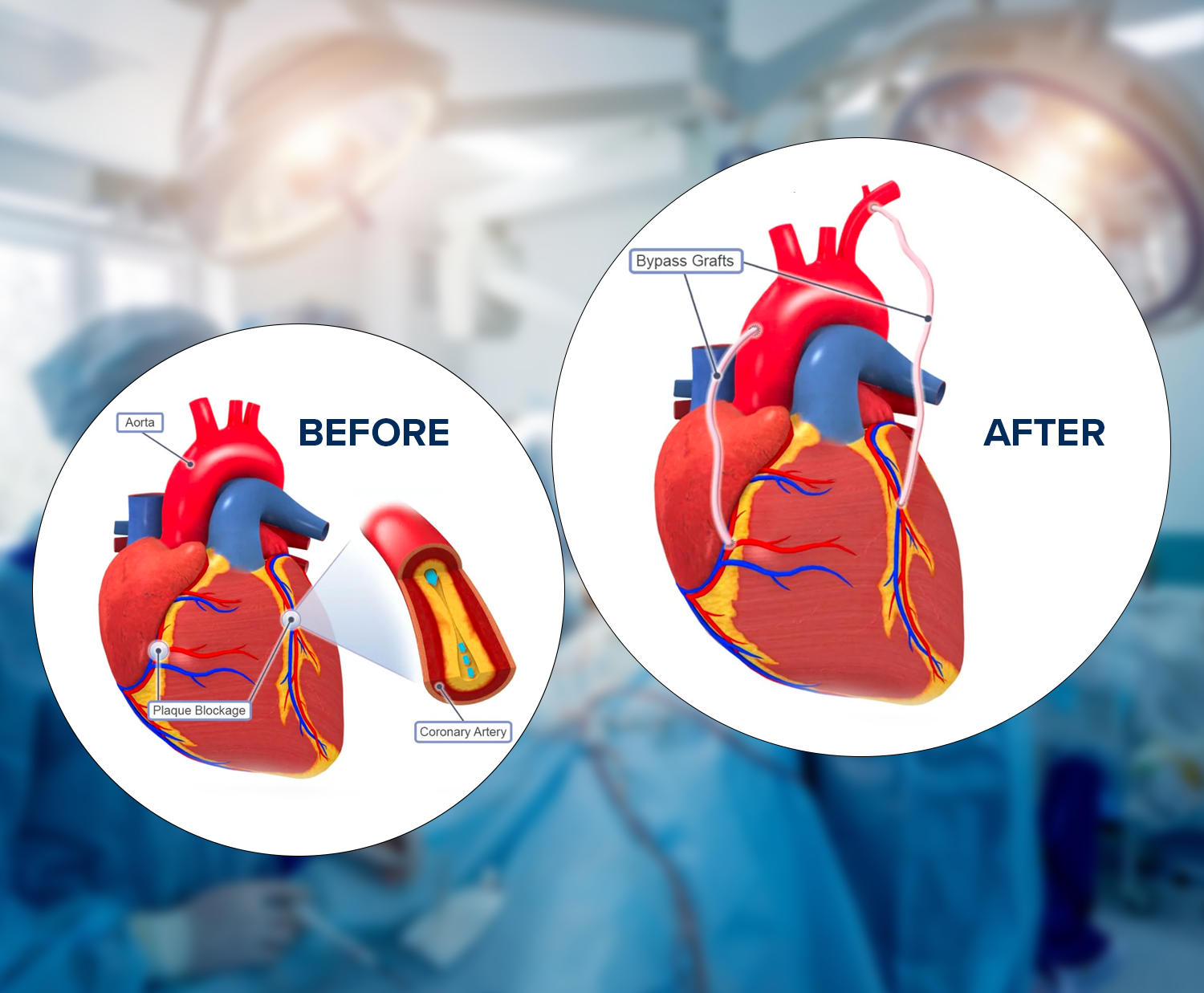
February 15, 2024
Comments
CABG Procedure Overview
Coronary Artery Bypass Grafting (CABG) is a surgical procedure commonly performed to treat coronary artery disease (CAD), a condition in which the blood vessels supplying the heart muscle (coronary arteries)…
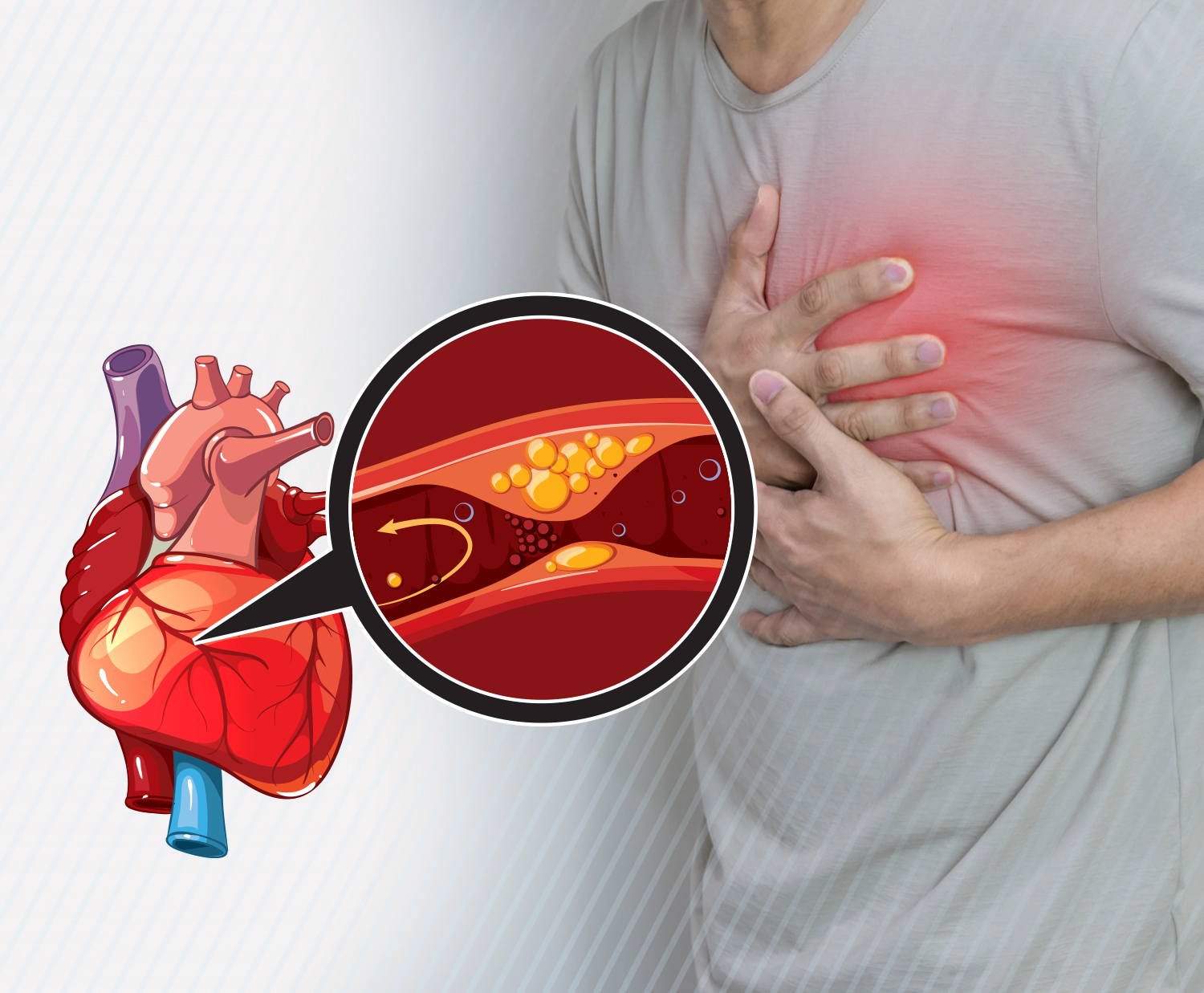
February 08, 2024
Comments
Indications for CABG
Coronary Artery Bypass Grafting (CABG) is a surgical procedure used to treat coronary artery disease (CAD), a condition where the blood vessels that supply the heart muscle with oxygen and…
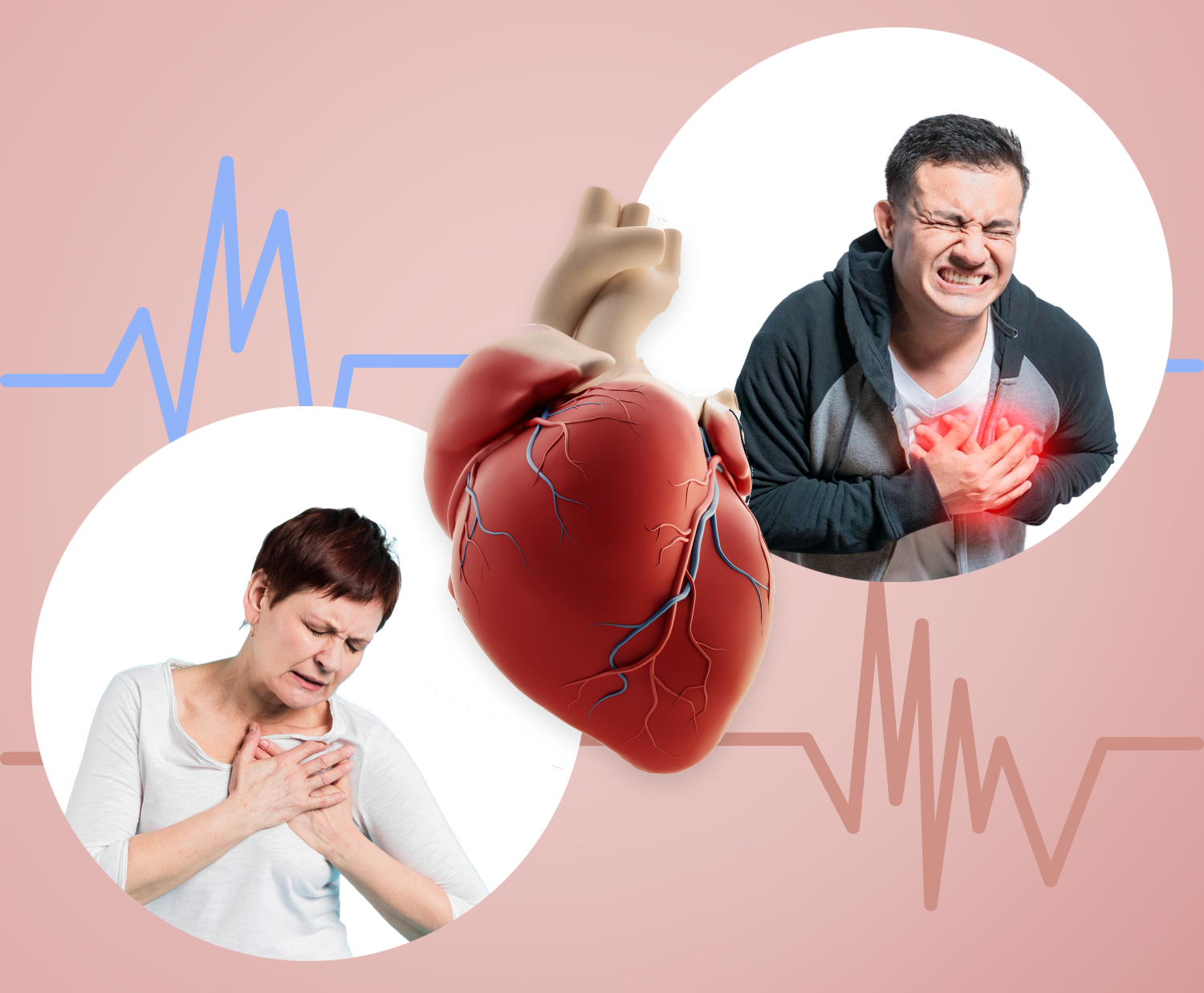
January 29, 2024
Comments
How Heart Disease and Autoimmune Disorders related
Heart disease and autoimmune disorders can be related through various mechanisms, and the relationship between them is complex. Here are some ways in which they may be connected: 1. Inflammation:…

January 19, 2024
Comments
What is Cardiac Rehabilitation
Cardiac rehabilitation (CR) is a structured and medically supervised program designed to help individuals recover from various heart-related conditions and improve their cardiovascular health. The primary focus of cardiac rehabilitation…
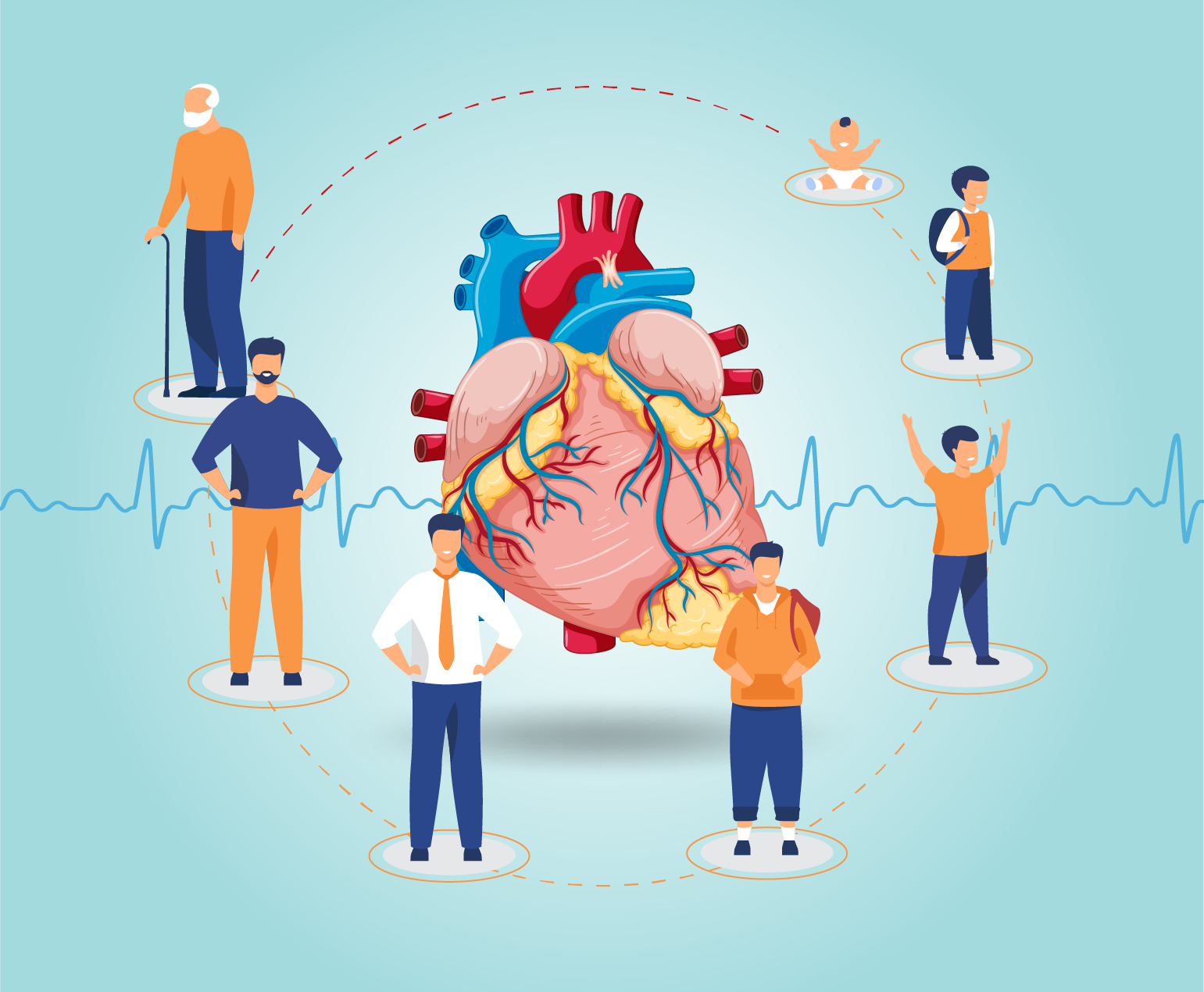
January 12, 2024
Comments
Cardiovascular Health in Different Age Groups
Cardiovascular health is important at every stage of life, and different age groups have specific considerations for maintaining a healthy heart. Here's an overview of cardiovascular health in different age…
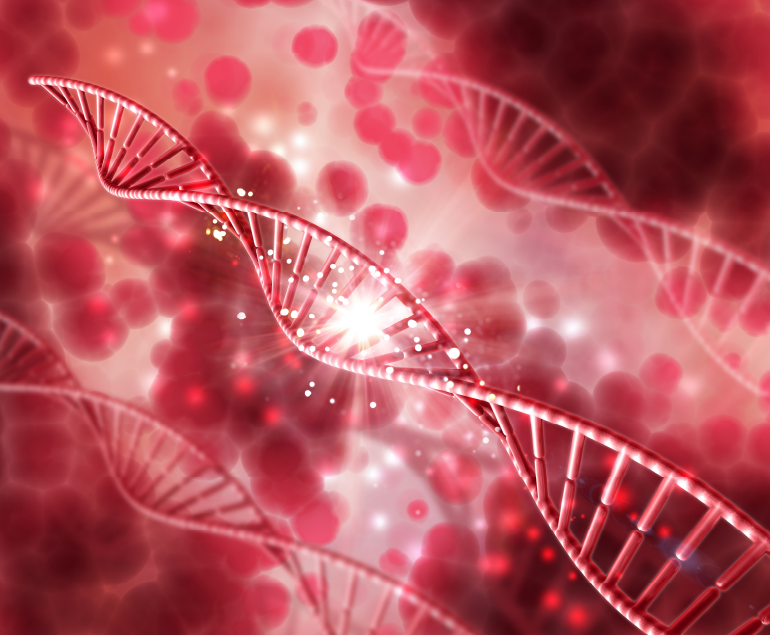
January 05, 2024
Comments
Genetics and Heart Disease
Genetics and heart disease are intricately connected, and the field of study that explores this relationship is known as cardiovascular genetics. Genetics refers to the study of genes and their…

December 28, 2023
Comments
Aging and Heart Disease
Aging and Heart Disease are interconnected in several ways. As individuals age, their chances of developing heart disease increase. Aging is associated with various physiological changes that can affect the…

December 21, 2023
Comments
Atherosclerosis
Atherosclerosis is a progressive condition in which the arteries become narrowed and hardened due to the buildup of plaque on their inner walls. Here is a more detailed explanation of…

December 10, 2023
Comments
Heart Transplantation Procedure
A heart transplant is a complex surgical procedure that involves replacing a diseased or failing heart with a healthy donor heart. Here's an overview of the typical steps involved in…

November 30, 2023
Comments
Heart Health Precautions during the Winter
Maintaining heart health during the winter is important, as colder temperatures can affect the cardiovascular system. Here are some precautions to help promote heart health during the winter: Stay Active:…

November 21, 2023
Comments
Air Pollution & Heart Disease
Air pollution is considered to be a silent killer that affects our daily lives. From the exhaust fumes of vehicles to industrial emissions and even natural sources like dust storms,…

November 10, 2023
Comments
Pediatric Heart Infections
Pediatric heart infections, although relatively rare, can have serious and potentially life-threatening consequences for children. These infections affect the heart muscle, valves, or the inner lining of the heart chambers…
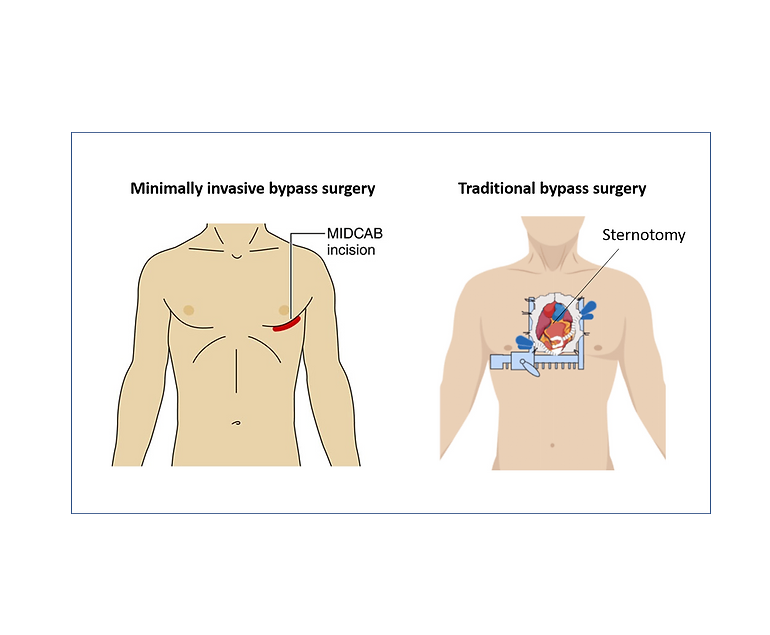
October 30, 2023
Comments
Minimally Invasive Direct Coronary Artery Bypass Grafting
Minimally Invasive Direct Coronary Artery Bypass Grafting (MIDCAB) is a less invasive surgical procedure for treating coronary artery disease (CAD). Unlike traditional coronary artery bypass grafting (CABG), which requires a…
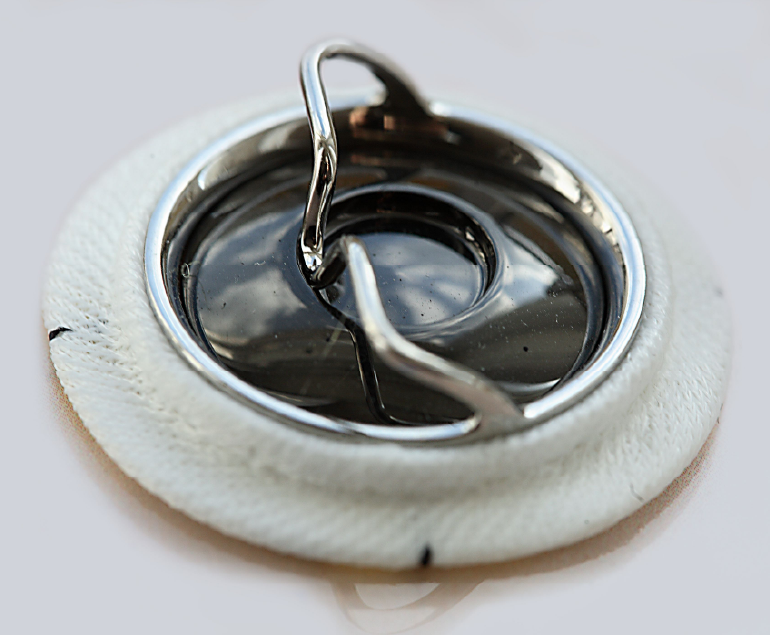
October 19, 2023
Comments
Prosthetic Heart Valves
The human heart is an extraordinary organ, tirelessly pumping blood throughout our bodies. At the core of this remarkable organ are four crucial valves that ensure the unidirectional flow of…

October 10, 2023
Comments
Bicuspid Aortic Valve
The human heart is a remarkable organ that is responsible for the continuous flow of oxygen-rich blood throughout the body. Among its critical components is the aortic valve, a gateway…

September 29, 2023
Comments
Cardiovascular Disease and Pregnancy
Pregnancy is a transformative and joyous experience in a woman's life, but it also places significant physiological demands on the body. For women with pre-existing cardiovascular disease, pregnancy can present…

September 22, 2023
Comments
Anxiety and Heart Disease
Anxiety is often considered as an emotional response to stress and has a profound impact on our physical well-being. While it is widely known that anxiety can take a toll…

September 15, 2023
Comments
Congenital Heart Disease in Children
Congenital heart disease (CHD) is a group of structural heart defects present at birth, affecting millions of children worldwide. These anomalies range from minor issues that may require minimal intervention…
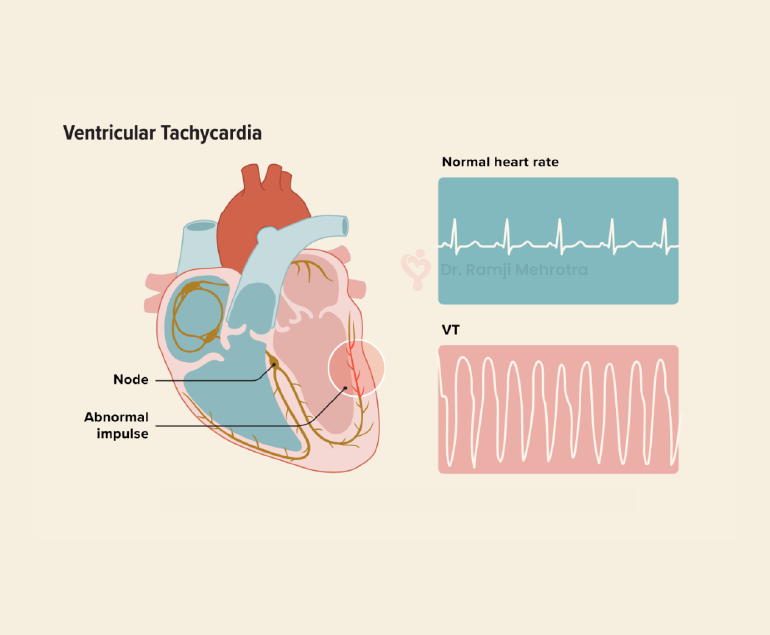
September 08, 2023
Comments
Ventricular Tachycardia
Ventricular tachycardia (VT) is a potentially life-threatening cardiac arrhythmia characterized by a rapid heartbeat originating in the ventricles, the lower chambers of the heart. In VT, the heart beats faster…

August 31, 2023
Comments
Silent heart attack: What are the risks?
A silent heart attack, medically termed a "silent myocardial infarction," is a potentially dangerous event that often goes unnoticed due to its lack of typical symptoms. Unlike a traditional heart…
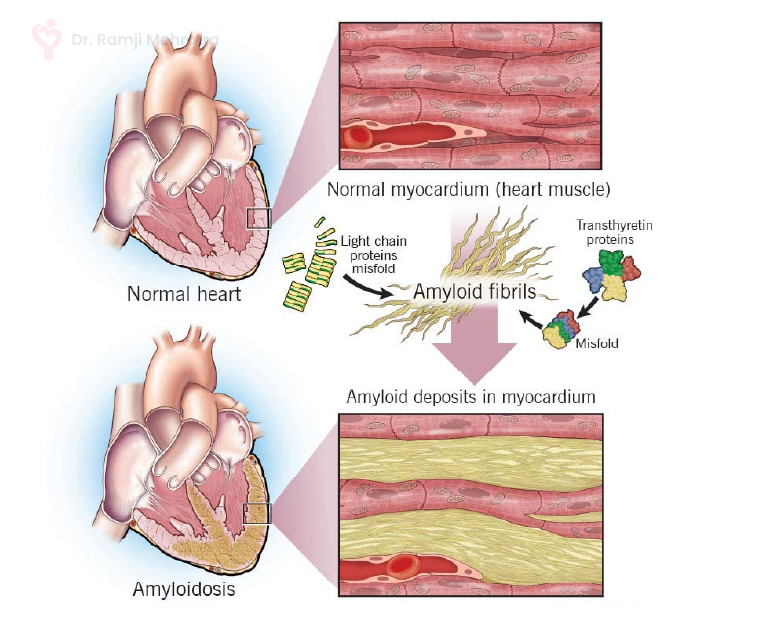
August 21, 2023
Comments
Cardiac Amyloidosis
Cardiac amyloidosis is a rare and potentially fatal disorder that arises from the abnormal accumulation of amyloid protein in the heart tissues, leading to compromised cardiac function. Nature of Cardiac…
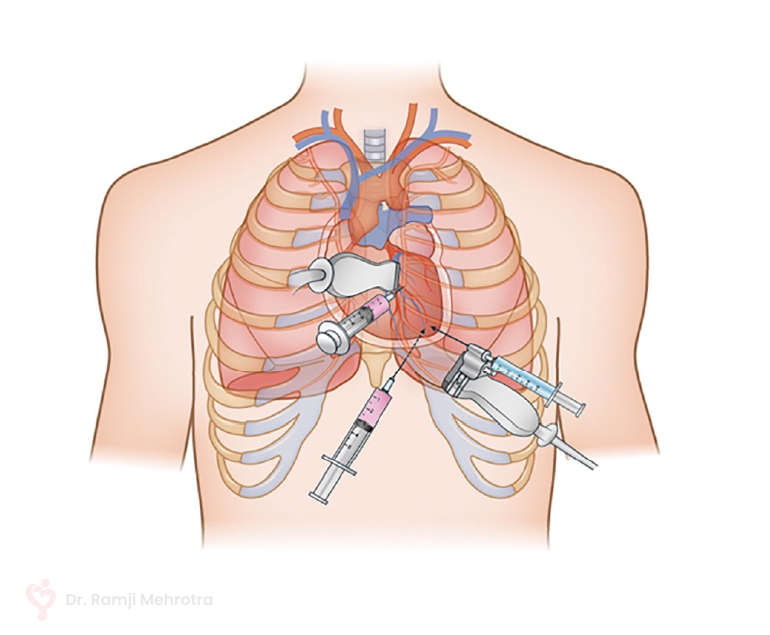
August 11, 2023
Comments
Heart Disease and Pericardiocentesis
Heart disease is one of the leading causes of mortality and requires advanced medical interventions. Pericardiocentesis is a critical procedure in addressing complications related to pericardial effusion – a condition…
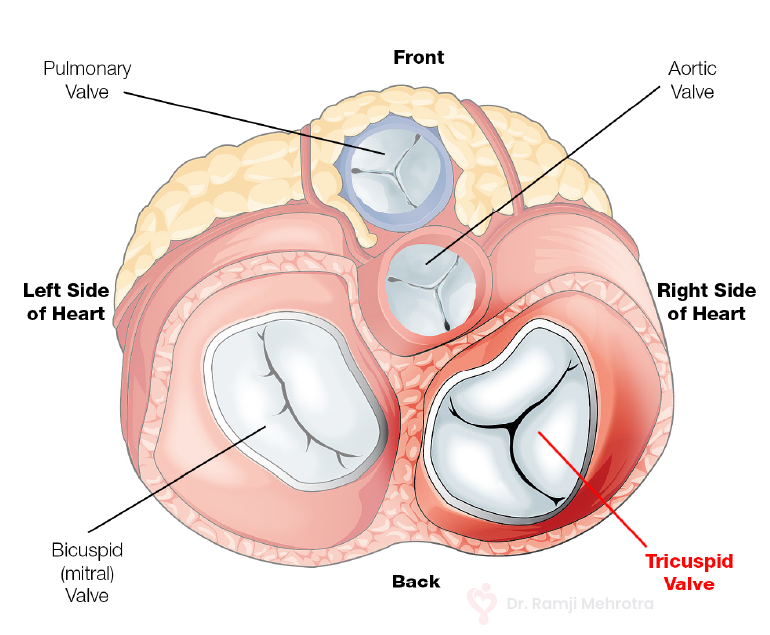
August 04, 2023
Comments
Tricuspid Valve Disease
The tricuspid valve is an essential component of the heart and regulates blood flow between the right atrium and right ventricle. Tricuspid valve disease is a medical condition that affects…
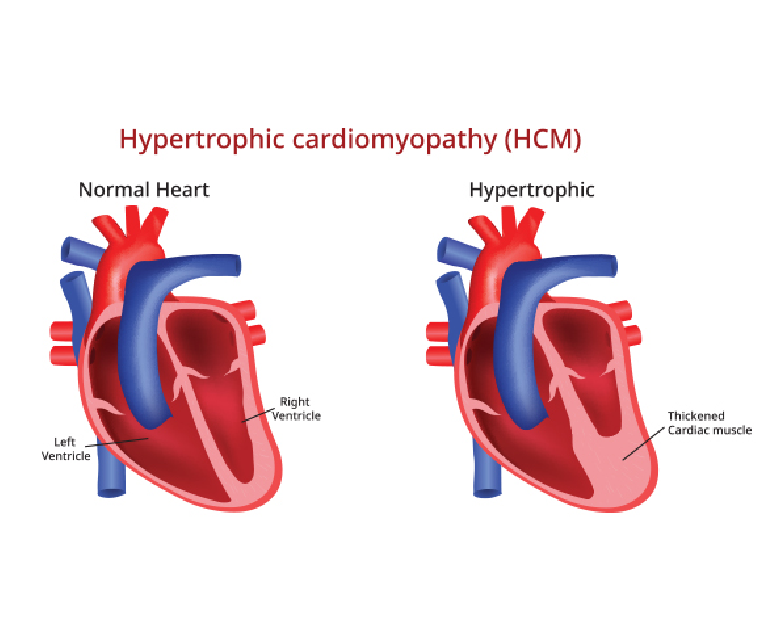
July 27, 2023
Comments
Hypertrophic Cardiomyopathy
Hypertrophic cardiomyopathy (HOCM) is a complex and potentially life-threatening heart condition characterized by abnormal thickening (hypertrophy) of the heart muscle. It is one of the most common genetic heart disorders,…
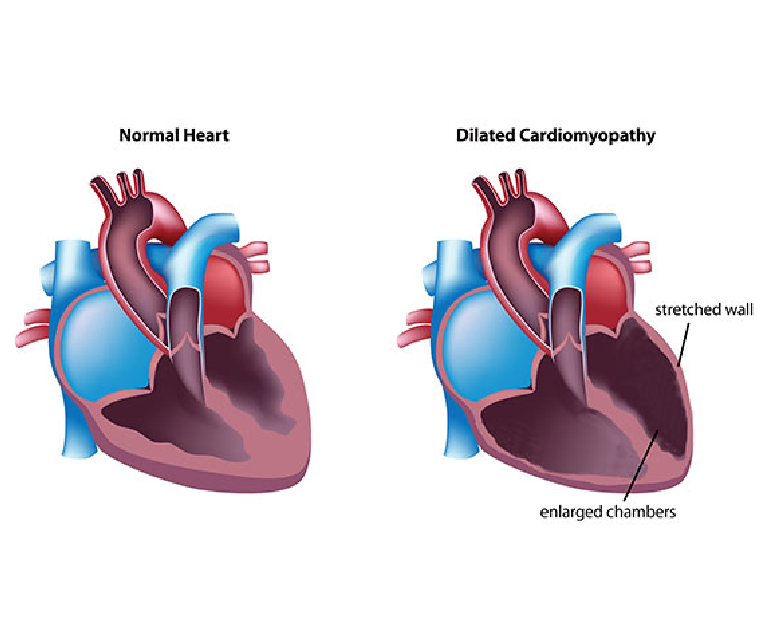
July 14, 2023
Comments
Dilated Cardiomyopathy
Dilated cardiomyopathy (DCM) is a condition characterized by the dilation and weakening of the heart's main pumping chamber, the left ventricle. This chronic and progressive disorder affects the heart muscle,…
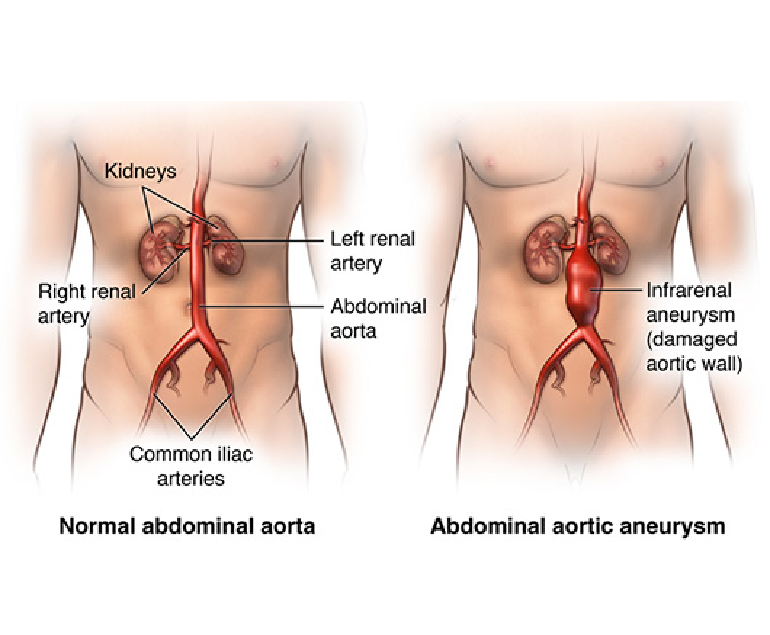
July 07, 2023
Comments
Abdominal Aortic Aneurysm
Abdominal aortic aneurysm (AAA) is a potentially life-threatening condition characterized by the enlargement and weakening of the aorta—the main blood vessel that supplies oxygenated blood to the abdomen, pelvis, and…
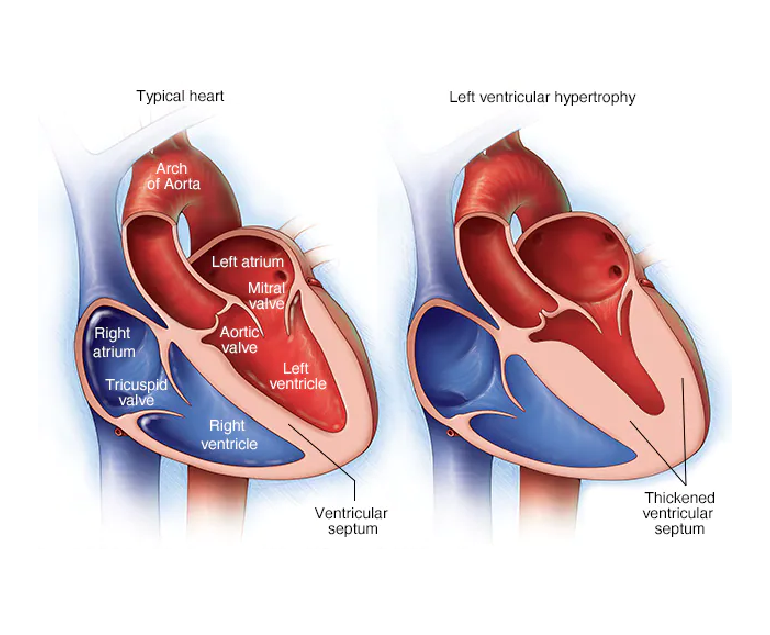
June 23, 2023
Comments
Left Ventricle of the Heart
The left ventricle is a crucial component of the human heart, playing a vital role in pumping oxygenated blood to the rest of the body. It is one of the…
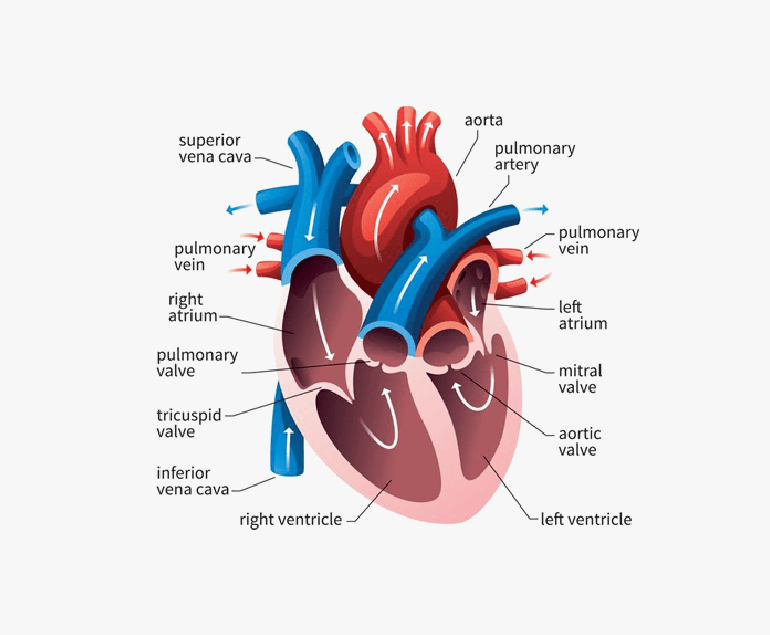
June 15, 2023
Comments
Rheumatic Heart Disease
Rheumatic heart disease (RHD) is a serious condition that affects the heart valves and is a result of complications from rheumatic fever. Although it is preventable and treatable, RHD continues…

June 08, 2023
Comments
Cardiovascular Conditions in Older Patients
Cardiovascular conditions in older patients pose significant challenges due to the natural aging process and the increased prevalence of risk factors associated with advanced age. As individuals grow older, their…
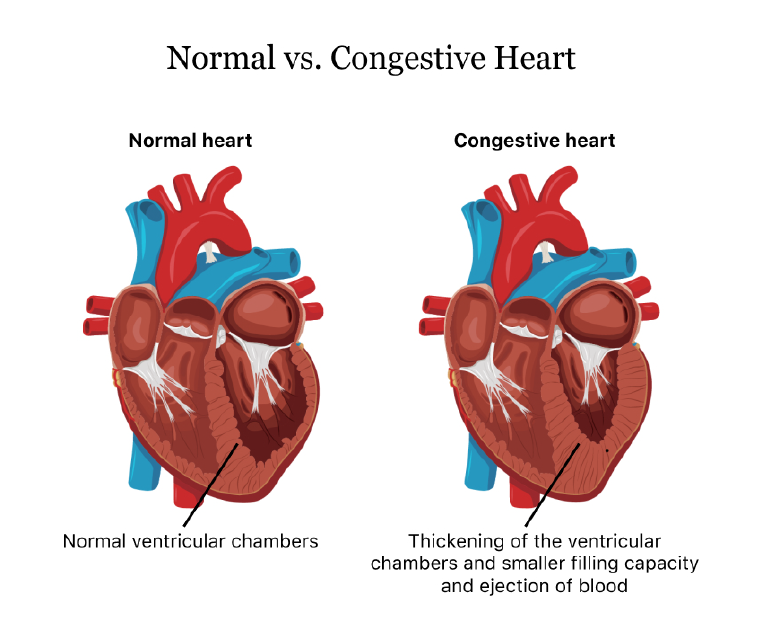
May 26, 2023
Comments
Congestive Heart Failure
Congestive heart failure (CHF) is a condition in which the heart is unable to pump blood effectively to meet the body's needs. This results in a build-up of fluid in…
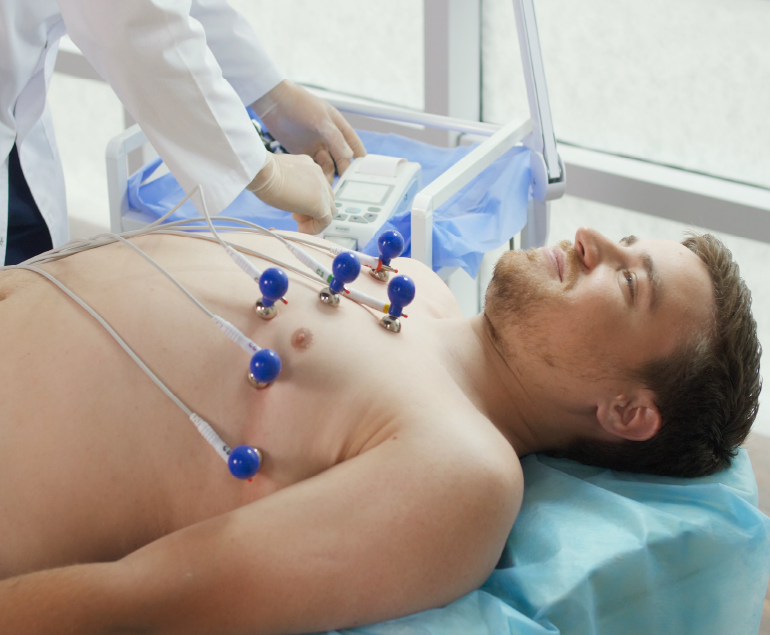
May 19, 2023
Comments
Dobutamine Stress Echocardiogram
Dobutamine Stress Echocardiogram, also known as DSE, is a non-invasive diagnostic test used to evaluate the function and blood flow of the heart. This test is commonly performed to detect…

May 04, 2023
Comments
Pediatric Heart Transplant
Pediatric heart transplant is a complex surgical procedure that involves replacing a child's damaged or diseased heart with a healthy heart from a donor. This procedure is typically reserved for…
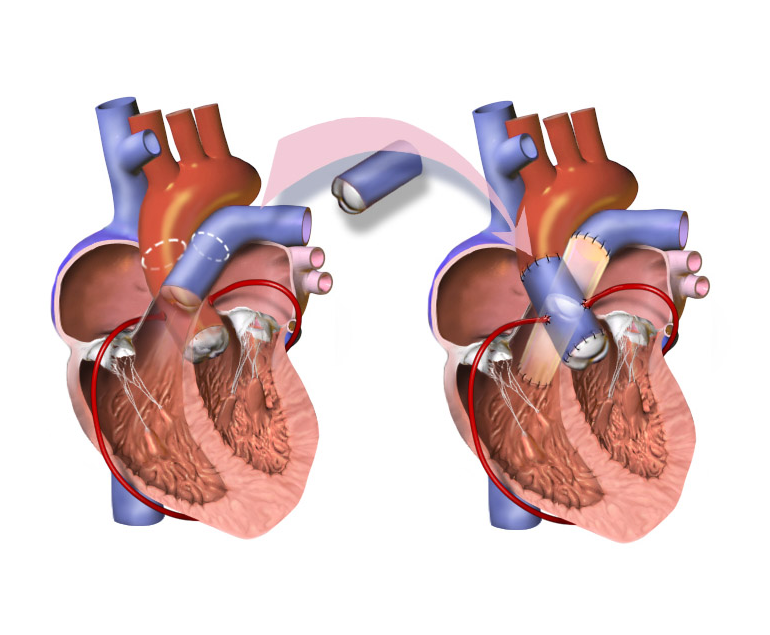
April 29, 2023
Comments
Ross Procedure
The Ross procedure is a surgical procedure used to treat aortic valve disease, which is a condition in which the valve that controls blood flow from the heart to the…
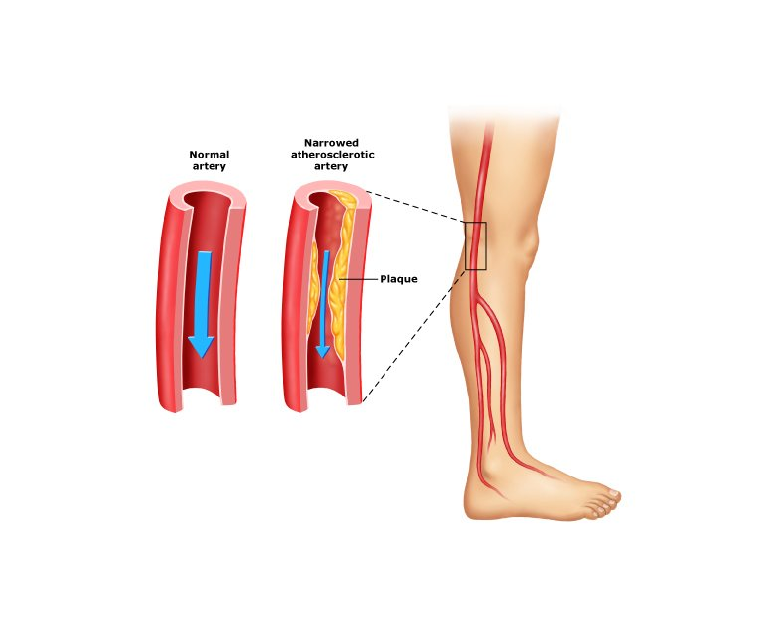
April 14, 2023
Comments
What is Peripheral Artery Disease?
Peripheral artery disease (PAD) is a circulatory condition that affects the peripheral arteries, which are the blood vessels that carry blood from the heart to the arms, legs, and other…
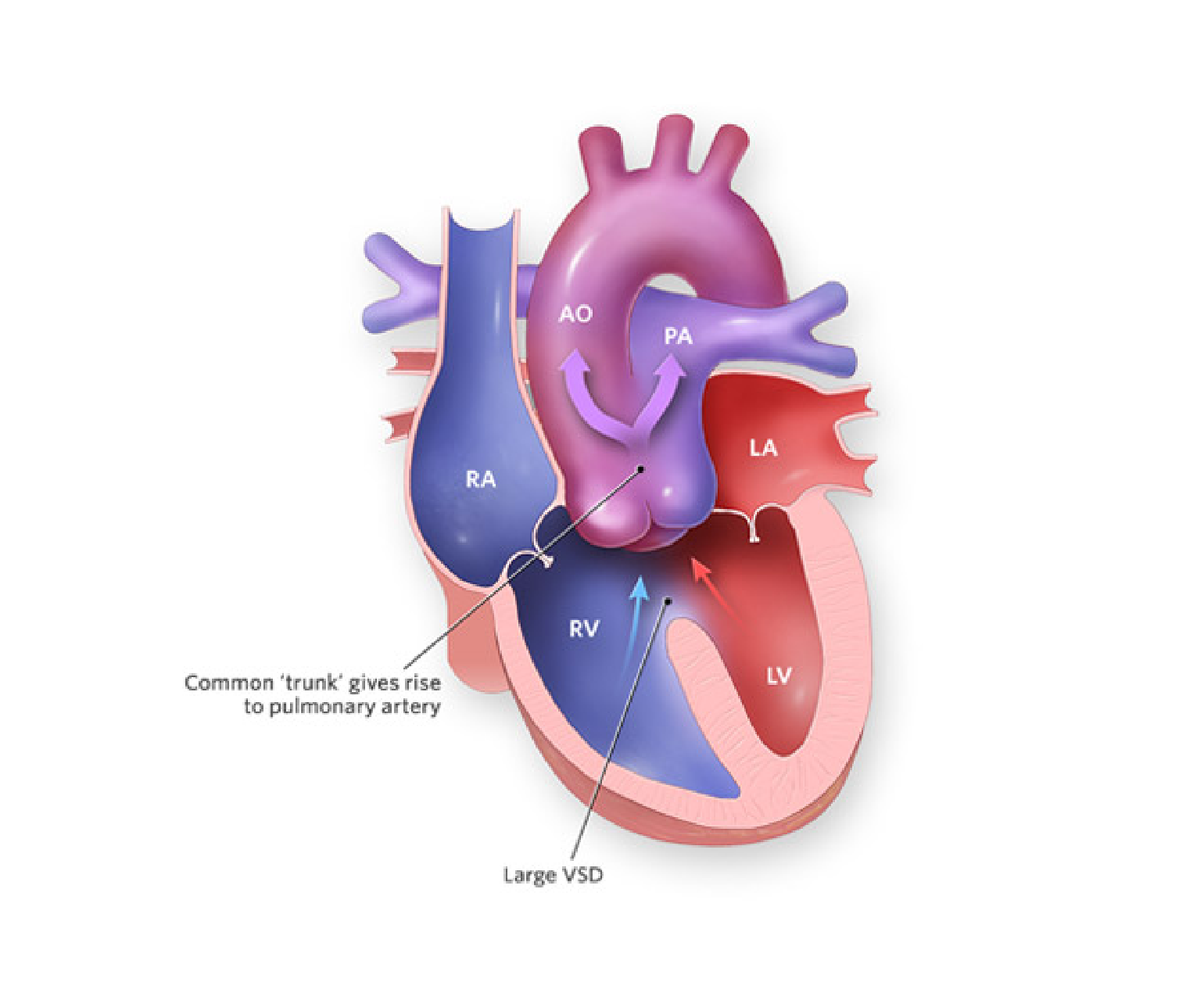
April 07, 2023
Comments
Truncus Arteriosus
Truncus arteriosus is a rare congenital heart defect that occurs in approximately 1 in 10,000 live births. It is a serious condition that requires prompt medical attention and intervention to…
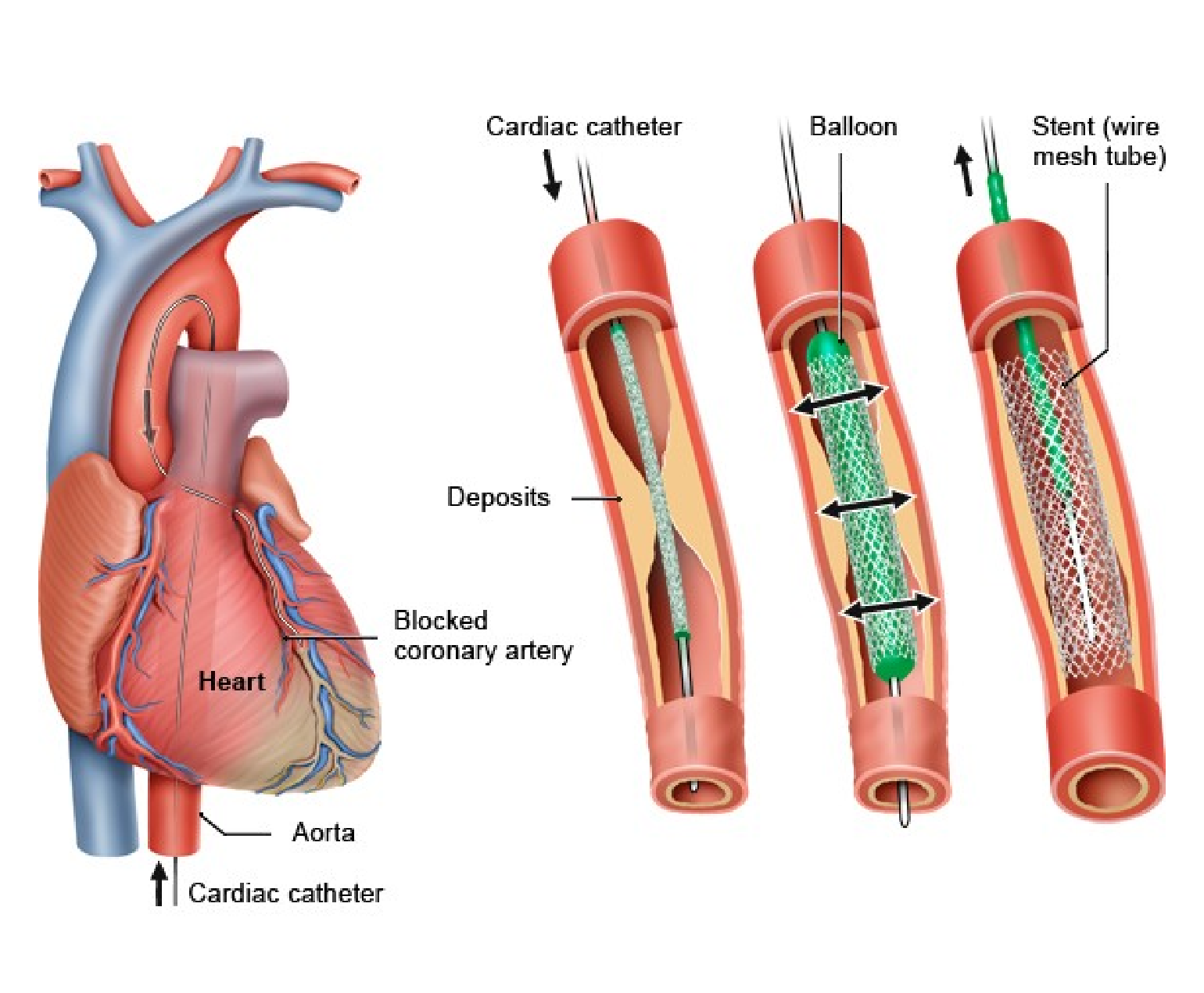
March 31, 2023
Comments
What is Cardiac Catheterization?
Cardiac catheterization, also known as coronary angiography, is a medical procedure that allows doctors to examine the heart and blood vessels to identify any problems. It is a minimally invasive…

March 24, 2023
Comments
Electrical Cardioversion
Electrical cardioversion is a medical procedure that is used to treat abnormal heart rhythms, also known as arrhythmias. This procedure involves the delivery of a controlled electric shock to the…
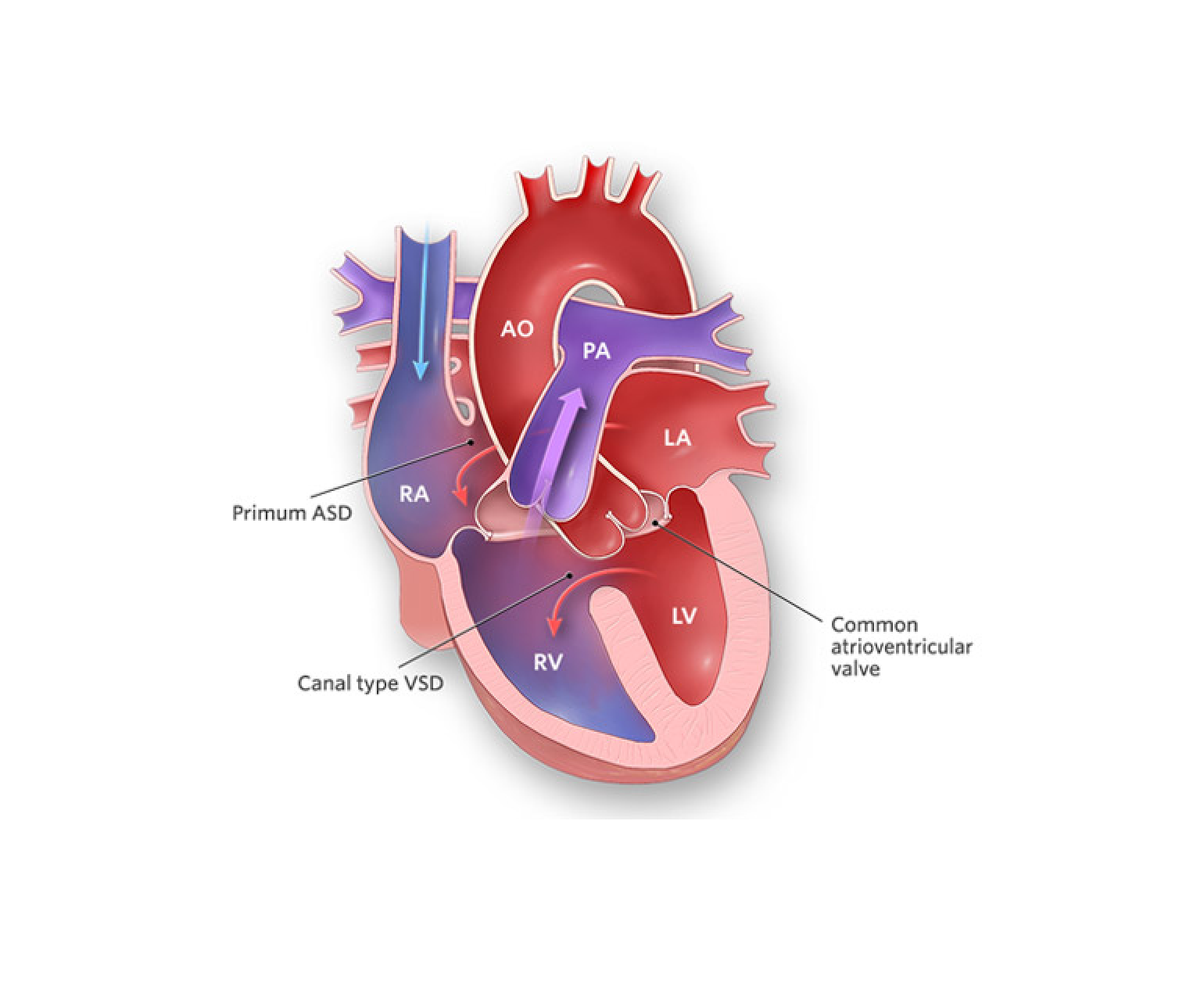
March 17, 2023
Comments
Complete Atrioventricular Canal Defect (CAVC)
Complete atrioventricular canal defect (CAVC) is a rare congenital heart condition that occurs when there is a hole in the centre of the heart that affects the atria and ventricles.…

March 10, 2023
Comments
How Positron Emission Tomography (PET) Scan Works?
Positron emission tomography (PET) is a medical imaging technique that produces detailed images of the inside of the body. It is used to diagnose and monitor various medical conditions, including…
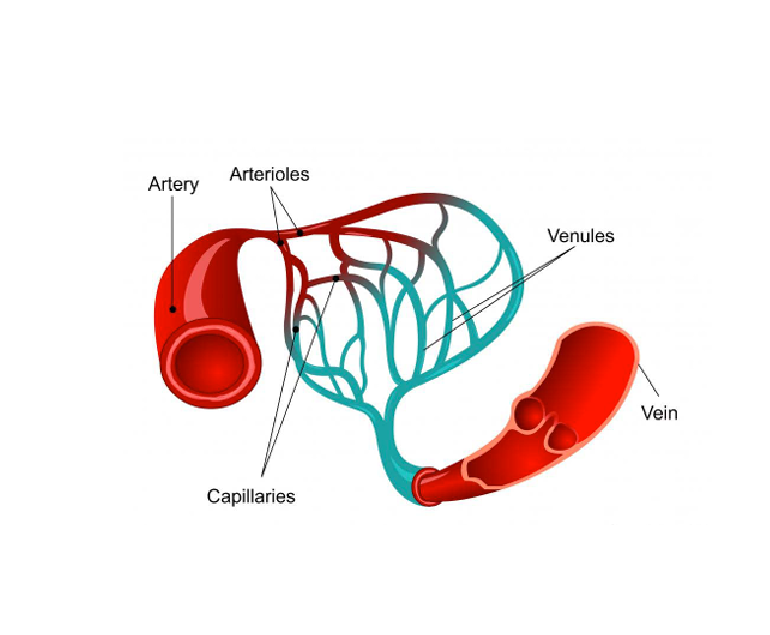
February 24, 2023
Comments
What is Vasculitis?
Vasculitis is a medical condition that affects the blood vessels in the body, leading to inflammation and damage to these vital structures. The blood vessels affected by vasculitis can range…
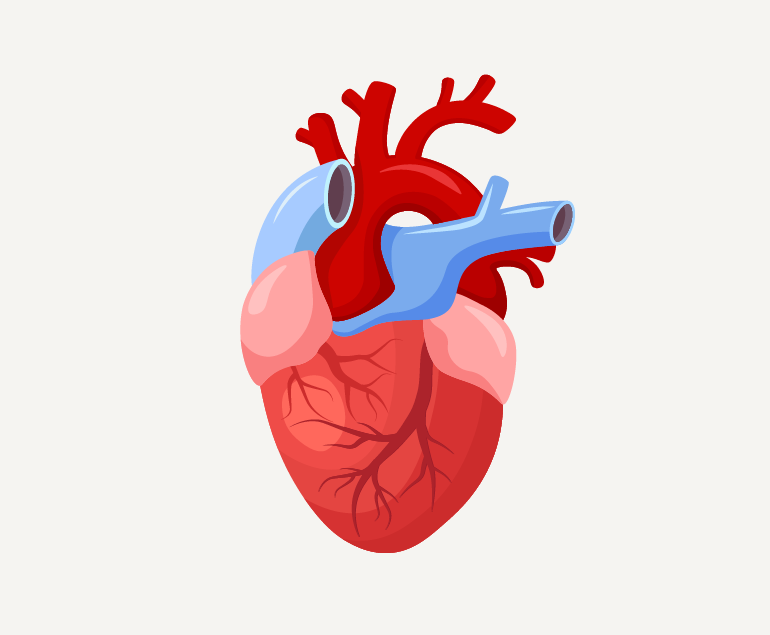
February 14, 2023
Comments
Different Types of Heart Disease
Heart disease, also known as cardiovascular disease, refers to a range of conditions that affect the heart and blood vessels. The heart is a vital organ that pumps blood throughout…
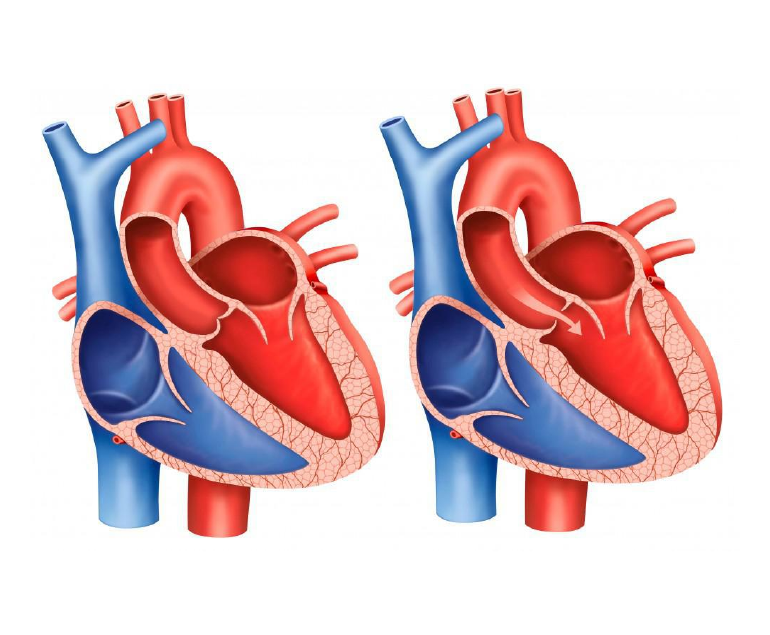
February 03, 2023
Comments
What is an Aortic Stenosis Murmur?
Aortic stenosis murmur is a heart condition characterized by a narrowed opening in the aortic valve, which is the valve that controls blood flow from the heart to the rest…
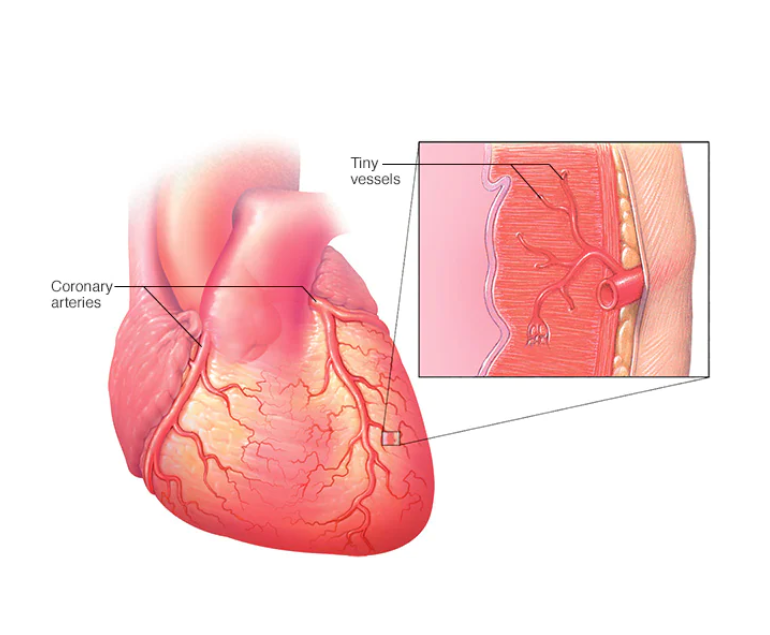
January 23, 2023
Comments
Coronary Microvascular Disease (CMD)
Coronary microvascular disease (CMD) is a condition that affects the small blood vessels in the heart. It is a common cause of chest pain and can also lead to heart…
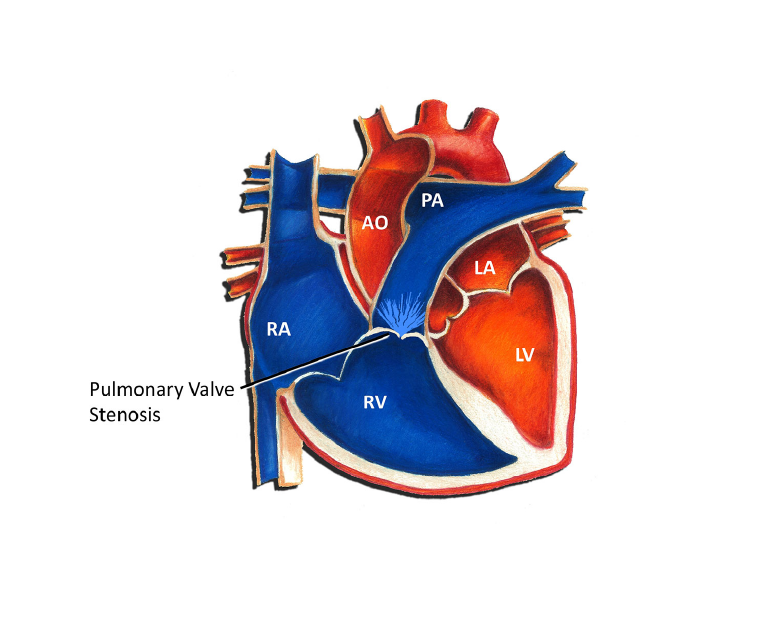
January 12, 2023
Comments
What is Pulmonary Valve Stenosis?
Pulmonary valve stenosis is a medical condition in which the pulmonary valve, which regulates blood flow from the right ventricle of the heart to the lungs, becomes narrowed or obstructed.…

December 30, 2022
Comments
How Aerobic Exercise Keeps Heart Healthy
Aerobic exercise, also known as cardiovascular exercise, is any activity that raises your heart rate and increases your breathing for an extended period of time. This type of exercise has…
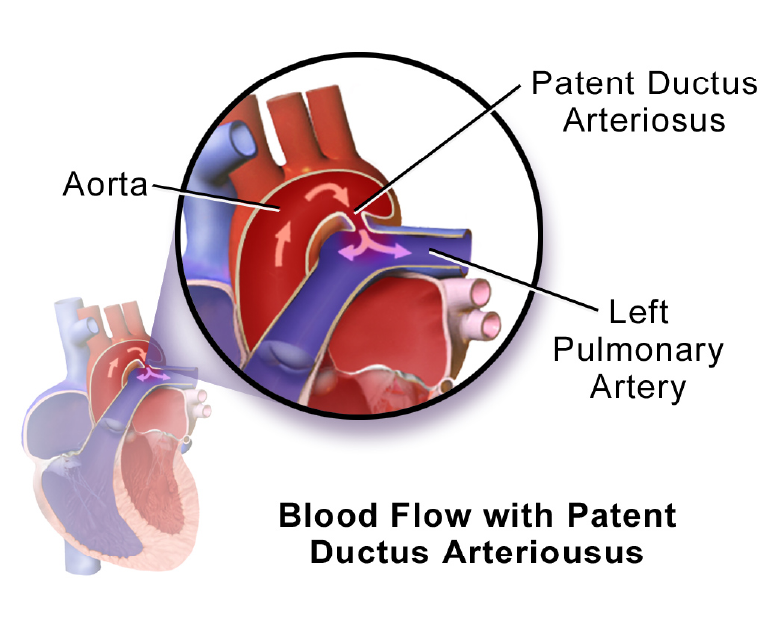
December 16, 2022
Comments
What is Patent Ductus Arteriosus (PDA) Defect?
Patent ductus arteriosus is a very common heart condition found in new born babies. It occurs because the ductus arteriosus blood vessel doesn’t close properly after birth. Babies born prematurely…

November 28, 2022
Comments
How can Work Stress Hurt your Heart – and How to Prevent?
Stress is considered to be a normal part of life. Stress under manageable limits increases alertness and performance. However, uncontrolled stress can lead to many health problems such as diabetes,…

November 14, 2022
Comments
Health Issues in Teenagers because of Breathing Polluted Air
Air pollution is very detrimental to human health. According to World Health Organization (WHO), air pollution is the reason for the death of nearly seven million people worldwide every year.…
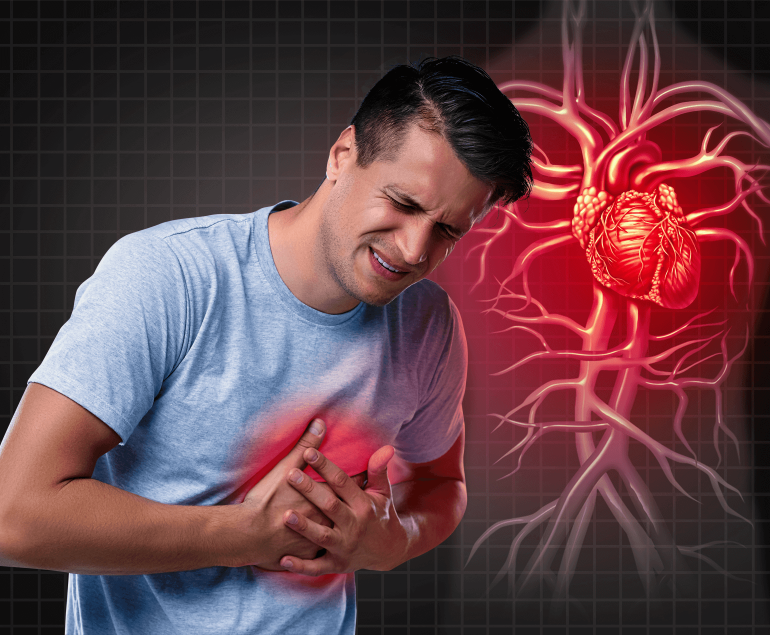
October 21, 2022
Comments
What is Acute Coronary Syndrome?
Acute coronary syndrome (ACS) refers to conditions where the blood supply to the heart muscle is suddenly blocked or severely reduced. It is a life threatening condition affecting millions of…

October 11, 2022
Comments
An Overview of Breast Cancer
Breast cancer is the second most common cancer diagnosed in women. It occurs mostly in women, though men can also get breast cancer (less than 1% of cases). With growing…
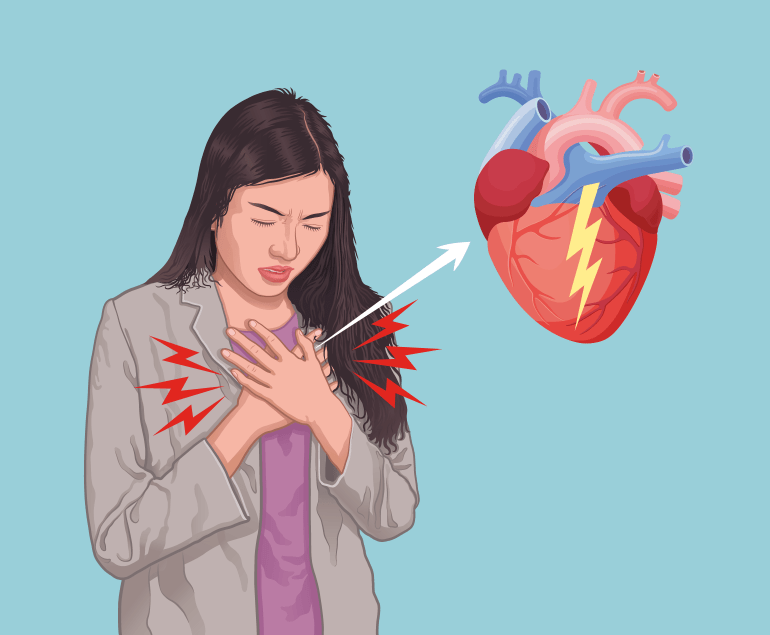
September 29, 2022
Comments
Women and Heart Disease
It is generally considered that heart disease affects men more than women. However, coronary heart disease is a leading cause of death for both men and women, though the symptoms…
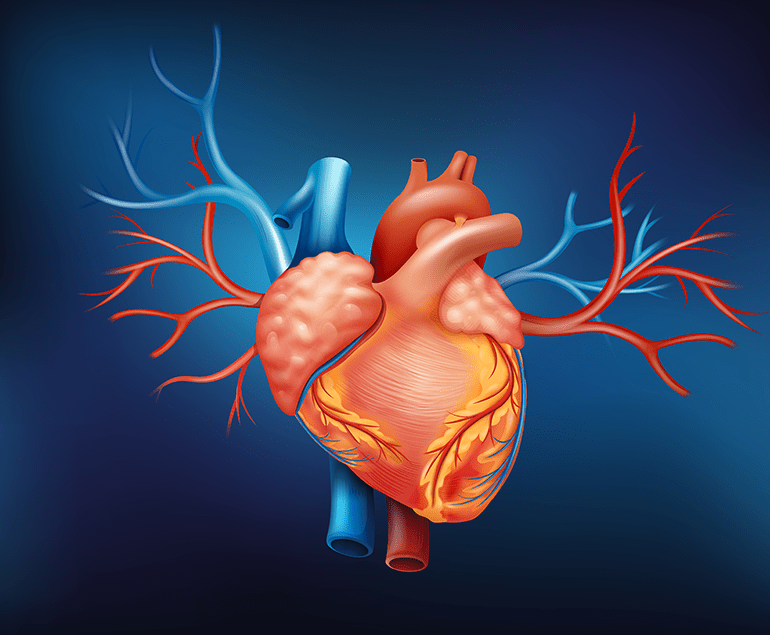
July 27, 2022
Comments
What is Coronary Artery Disease?
Coronary artery disease (CAD) or coronary heart disease is a common type of heart disease that occurs when the arteries become hardened and narrowed. This is caused due to the…

July 14, 2022
Comments
Life after Bypass Surgery
Coronary artery disease occurs due to the hardening of arteries supplying blood to the heart muscle. Bypass surgery is performed to restore normal blood flow to the obstructed coronary artery.…
May 20, 2022
Comments
Signs and Symptoms of Omicron XE
The XE variant of Covid-19 is a mutation of Omicron BA.1 and BA.2 strains. It is a recombinant where two related parent viruses exchange genetic material to create offspring with…
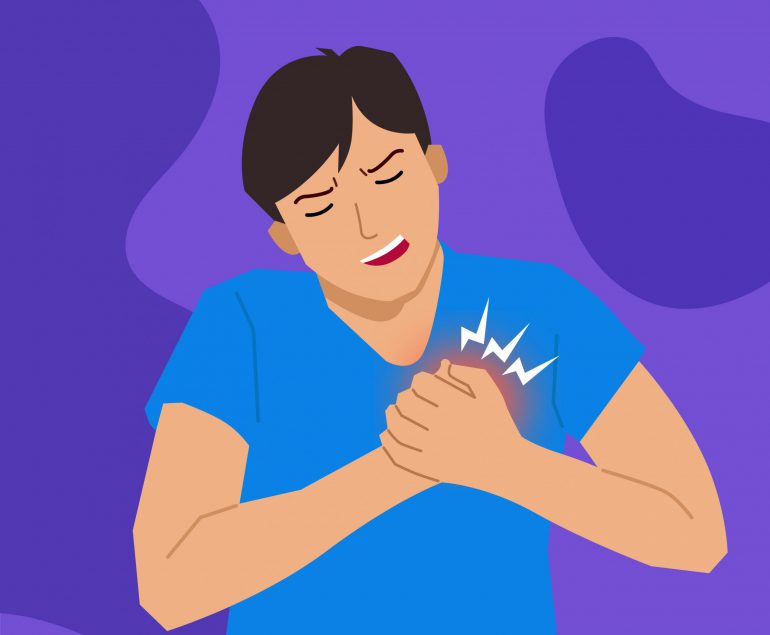
May 10, 2022
Comments
Heart Attacks Are Becoming Common In Young People
Heart attacks, which were once called "old man's disease", are now occurring more frequently in younger people including women. It is increasing in people in the 20’s to 40’s age…
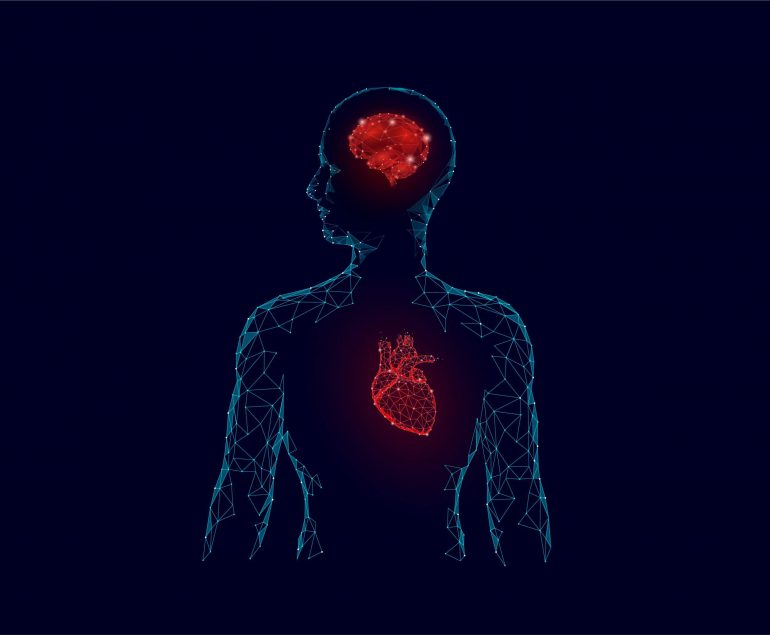
April 04, 2022
Comments
How Depression and Heart Disease are interlinked?
Depression and heart disease are two widespread diseases observed among the general public today. They often occur simultaneously within the same person. Many patients have been affected by depression after…
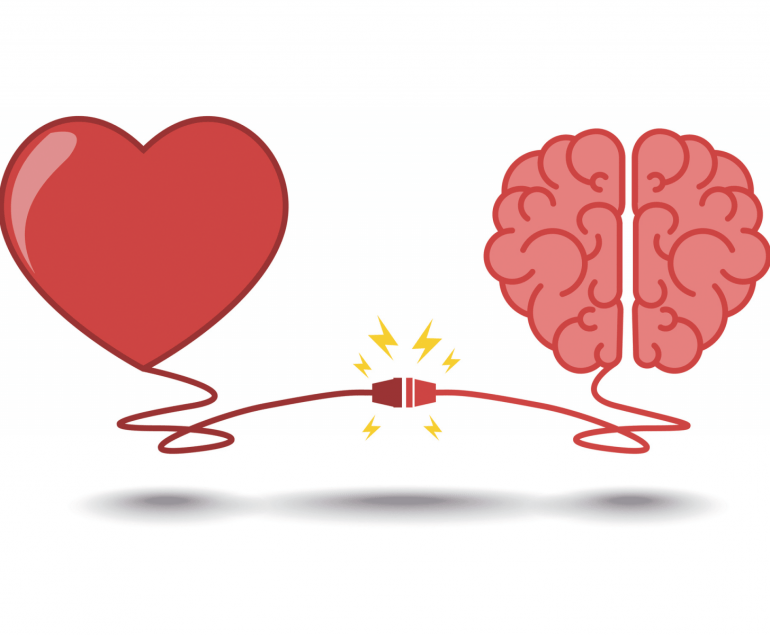
December 12, 2021
Comments
Effect of a Positive Mental State on Heart
Mental health is an important component of the overall health of an individual. It involves a combination of psychological, emotional, and social well-being. Benefits of good mental health include reduction…
